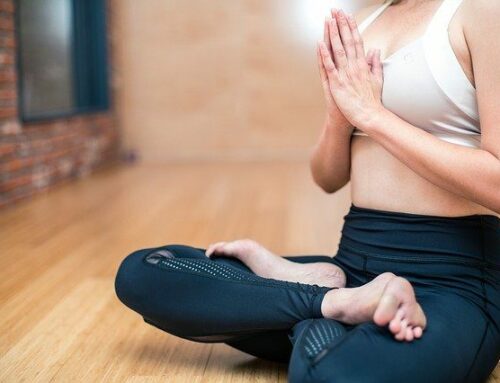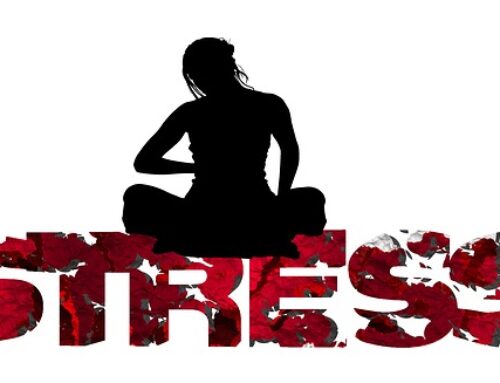It’s always stressful to think of a good opening to a blog post. Sometimes I just write my thoughts like this to clear my mind. Other times, I turn to meditation, for a beautiful opening and also a few other problems.
It seems that two of my previous post that touches on mindfulness meditation has received a better response on social media. But does meditation reduce stress, or is it just a modern hype that popularizes this ancient mind-calming technique?
I normally get pretty tensed after a cup of coffee or tea in this case. (After crossing the magical age of 30, I became sensitive to caffeine). I just had one and in this state, I got an increased heartbeat and my thoughts would go all over the places. On a bad day, I would be depressed until the caffeine is out of my system.
Or I could try relaxing my mind.
By Doing This 4 Steps
Here’s what I want you to do
- Close your eyes.
- Breathe normally and mentally count every single breath.
- Stop at 20 counts.
- Open your eyes.
Do you feel the thoughts in your mind slowing down, towards the end of the counts? Do you feel the tendency for your mind to stray off to other subjects? Are you feeling more relaxed when you open your eyes?
Mindfulness practice has been a growing trend among therapist. If you really want to know what is mindfulness, check out this article here on SpiralRevolutions.
I’m not too good in giving definitions. But what you just did with the breath counting is mindfulness itself. You are living in the present. You are not thinking about other thoughts like “Are My Problems Going To Disappear After Meditating?”
But Is this meditation? Well, with such short and simple instruction, I would say this is rather a mind relaxation technique. ( although there is a similar form of meditation).
I can count that you are still with me if you are reading this very line. ( some people do get drowsy in meditation, especially after a heavy meal).
Has Stress Been Denying You A Good Night Of Sleep?
I think each of us has our own stress threshold. I would call it mental capacity. It’s about how much stress you can take until you have a nervous breakdown or shrink into denial.
I must say I cope pretty well with work and business challenges. But when it comes to relationships or parenting, I get stressed up easily. What’s your dominant stressor? Stress when exceeding its healthy limit could wreak havoc in your life, giving you physical and mental health problems.
Insomnia is one often associated with stress.
Do you sometimes close your eyes hoping for sleep to come, only to have your mind actively rehashing your daily problems and your worries for tomorrow? Or do you woke up a few times during midnight, and felt like you’ve never rested in the morning?
Not all insomnia or sleep problems is due to stress, but unmanaged stress could lead to insomnia, according to this article in sleepfoundation.org.
Mindfulness Meditation Can Reduce Stress…BUT
But you have to do it the right way and with constant practice. You can’t expect to learn meditation today and expect your life to be less stressful tomorrow.
If you asked me when would your stress be reduced? I will ask you to look at it in a different way. Change your perspective. Think meditation like a lifestyle. Or a process. It’s just like working out in a gym.
Do you build muscles immediately after a few days of workout? Does your stamina increases after a few session on the treadmill? And maybe the most important question is what happened to your health after you stopped working out?
Same applies to meditation. You are building your brain muscles here. Your focus, willpower, and your ability to be present and free from distractive thoughts. Don’t expect overnight results. In fact, the expectation itself could have prevented you from meditation progress.
Dr. Alice G. Walton, whose post featured in Forbes, said: “If there’s one mental practice that’s stood the test of time – and rigorous laboratory tests – it’s meditation“. If you are interested in further references by other experts, do check out her article.
Into The Calm Zone Of Mindfulness
I want to draw you back to the simple exercise of breathing just now. I will try to give you a good analogy of how mindfulness meditation or practice will reduce your stress.
When you focus on counting your breath, your mind is on the counting alone. You do not think about, “Should I breathe harder?“, “Am I doing this right?“, “Is my breathing normal?” or “What would people think when they see me doing this?”
Nope.
You are in what I call your ‘Calm Zone“. The state of living and existing in the present moment.
Imagine your mind as a glass of water. In its normal state, you will have ripples. When it’s agitated, the ripples become waves. Only by stilling it, you are able to have peace and find great strength in your mind.
You are stressed when you think about your past (which you cannot change) or your problems (which you have yet to find a solution). At this state, you are either existing in the past or the future.
But your solution does not exist in the past or future, it exists in the present. In the here and now. I think it makes sense if I suggest bringing your wandering mind to the present when you are overwhelmed by problems?
Does it surprise you that people who always overcome their problems and became successful are those who take action? Because taking action is all about living in the present moment.
Let Mindfulness Be Your Lifestyle
People who don’t understand mindfulness meditation often give excuses like “But I have no time to meditate“, “I’m too old/young to do this mindfulness thing” or “I can’t find a good meditation guru”.
Having said that, I admit it’s hard to find a good meditation guru in urban cities. Sometimes you travel for 45 minutes to a meditation class that is so crowded. Especially in places when meditation session are held after working hours.
It’s hard to meditate when your physical body is already so tired after a long day of work plus the long drive to get to the class. (It may turn out to be a “sleepitation” instead).
But with internet and technology at our fingertips, we start our mindfulness meditation practice with online resources. There are good ones available, but I’ll leave that to your judgment.
In my last post, I suggested about checking out Master Your Mind, a meditation course for beginner spanning over 5 weeks. It’s a paid program (USD59), with lifelong access and money back guarantee.
But because I have seen positive reactions from readers on mindfulness meditation, I have created a beginner’s guide : Mindfulness Meditation Made Simple which you can download for FREE when you SUBSCRIBE for our updates.
What are your thoughts of mindfulness meditation? Have you ever tried meditation before? Does it reduce your stress? Share your thoughts in the comment section.







I enjoyed reading your post. I struggle with meditation and mindfulness as I find it hard to quieten my mind, but I understand the importance of being in the present so this is something I am really trying to work on.
The mind relaxation technique you mentioned was a nice and simple exercise to do – a good reminder to take a little bit of time out of the day to do it! I feel when people are stressed it can be very difficult to not be anxious over it so this technique definitely allows for a pause from it all and to bring us all back to a calm place. Great read, thanks!
Hi Andrea,
It’s normal to struggle with meditation. If I’m not mistaken i’ve been struggling for the first 1-2 years. When our mind has been a busy network of traffic for so many years, it really take some time to calm the thoughts.
Don’t give up.
Cheers,
Kenny
Andrea, are you going to try meditating? I’m going to give it a try, not just once, but I’ll really give it some time. Making time will be the hardest thing. But I can sit and just think for long periods.
Meditation always sparks my interest. I want to know if there is something there that I should be paying attention to. The problem is that I am thoroughly convinced of the truth of God’s word, every word of it. And it says in 2 Pet 1:3, “He has granted to us ALL things pertaining to life and godliness through the true knowledge of Him who called us by His own glory and excellence.” I don’t find anything in the bible concerning meditation, although the mind and certainly our spirit is of paramount importance. How does meditation come into play here? I’d like your thoughts on this. I would truly like to know how you feel. Please reply, Jim.
Hi Jim,
Although meditation has its root in the ancient religions of the east. I’m presenting meditation as more of a scientific or a spiritual practice and not a religious one. I was never a Christian and I must apologize for my ignorance of the Bible and the verses.
What I’m trying to present is an age-old technique that could possibly precede religion (as I’ve never mentioned about Buddhism and Hinduism). I’m taking the technical part of mindfulness meditation that many have tried and works. The objective of doing this type of meditation is to develop focus, concentration power and also to manage negative thoughts well.
I believe if a technique could work to calm our mind, it will work regardless of its origin and the name we gave it.
Kenny.
I can’t separate spiritual things from religion. Since the idea of spirituality does not fit coincide with any kind of evolution, our spirit must come from some greater power. And if we do accept the idea of a greater power existing, then that is really what religion is. Religion is how we feel and act towards that higher power. I still want to learn more about meditation, because I think it could possibly open the mind to more understanding of the spirit of man. To understand our spirit, we need to get away from focusing on the physical. Does that make sense to you?
Hi Jim,
I think the concept of spiritual and religion is unique to each of us. But what I can say is, being practicing meditation definitely has benefit for your physical and mental health. In a way, it does go beyond the physical. Do try it out. It will be an interesting experience.
Cheers,
Kenny
Hey Jim
Meditation upon God’s word is as simple as reading your bible and praying with all your heart and soul to God. God is your saviour, helper, and most of all your best friend. Talk to him like you would a friend. Tell him all your troubles, worries whatever they are and most importantly don’t stop trusting in Him.
Cheers
it is true – meditation is not just a one-off thing you do and then you get better stress-wise (like a pill!). it’s a lifestyle and it’s part of the mindfulness practise. i enjoy meditation but many times it’s proved to be difficult to quiet the mind. the tips you have given certainly helps to simplify the process. thanks for sharing!
Hi,
When you can’t quiet the mind, you observe where it goes and pull it back gently. That’s what mindfulness is all about. Happy meditating and thanks for reading.
Cheers,
Kenny
I really enjoyed reading your article as I need to learn to deal with stress better. You offered some great tips to relieve stress as we all know stress if not managed carefully is the number one killer to mankind.
I like your meditation technique as it helps us take a moment to reflect on the most important thing we have that we take for granted and that is being alive. I practise that technique regularly and it really does help calm me down when I’m stressed out.
Hi Kent,
Thank you for your comment. I’m glad you managed to connect with yourself in that moment of mindfulness. Keep it up.
Cheers,
Kenny
I have been curious about meditation and how it could possibly make myself a more successful person. I realize that “living in the now” helps to control anxiety or stress about the future. I also know that sometimes we are haunted by our past which may or may not be full of pleasant memories.
How would you instruct a beginner about how to relax and empty your mind, which for me is very difficult?
Hi Kenneth,
I find that one key to success is to have focus and consistency in pursuing our goals. I’m using meditation as one of the techniques to build focus power.
I think most people misunderstood meditation as ’emptying our mind”. It really isn’t. As long as we are breathing, we will always have thoughts. What is key is we bring the thoughts to what we are doing at the moment instead of having it straying to thoughts and memories of past and futures.
The meditation technique that I’m suggesting doesn’t force your mind to focus on a single object. Instead it has a base on a primary object and when the mind wanders off, you just gently bring it back to your primary focus. Do get a copy of my free meditation guide to try it out.
Cheers,
Kenny
Excellent post, mindfulness is what I teach my clients every day. Great ideas to put into your daily life. Love this post good examples – Thanks for sharing.
Hi Helen,
Thank you for your comments. You did a great job on your site as well.
Cheers,
Kenny
Hi there Kenny,
Thank you for writing and sharing with us this excellent article.
Meditation is something that can indeed reduce stress and actually elevate feelings of joy and happiness (this I can personally testify to as I have meditated daily since 2008 for at least one hour a day.
Scientifically and medically proven that meditation increases levels of the feel good brain chemical an neuro transmitter dopamine.
Hi Derek,
Thank you for your comment and your words on the benefits of meditation that you personally experienced. I hope more people will take up meditation.
Cheers,
Kenny
Great article!!! I would have to say the hardest thing for me, when I first started to meditate was clearing my mind. You are absolutely right that it is not something you learn to do over night, but once you learn how to, it is a very relaxing and calming feeling. Meditation is not only a great way to relieve stress, but it is a great tool to refocus to get a new perspective on situations.
Hi Danielle,
Thank you for your comment. When you meditate, you learn how to live at the present. Naturally, without stress it widen your perspective for your solutions.
Cheers,
Kenny
Thanks for the post. I have recently tried to get into mindfulness and meditation, but it is admittedly a struggle. Do you like any of the mobile apps that teach these approaches?
Hi T.C.,
The beginning is going to be a struggle. The best way is to practice under an experienced meditation teacher. But if you can’t get one, I would say getting a proper online meditation course will help. If you are a beginner, I would highly recommend Master Your Mind . It is laid out in day to day lesson, where you can easily keep track of your progress. The instructions are easy to follow and they even have a section where you could leave your comments and get feedback.
Cheers,
Kenny
I enjoyed reading this article on reducing stress and I tested out your 4 steps relaxing mind suggestion and it certainly worked for me. Have never tried formal meditation courses as a means to reducing stress but have discovered peaceful relaxing classical music also helps in this regard
Hi James,
I’m glad it works for you as it did with so many others. Relaxing music also works to reduce stress. I listened to them too.
Cheers,
Kenny
Hi James,
I’m glad it works for you as it did with so many others. Relaxing music also works to reduce stress. I listened to them too.
Cheers,
Kenny
Hi Kenny. I agree that meditation is more like a state of mind (or a life style, as you wrote), rather than an exercise. In any moment of the day when I don’t need to be focused on an activity, I do a quick mental scan of my body and I check my breath rate. Getting a constant feedback from my body helps me a lot to reduce stress, and sometimes it even allows me to take actions to prevent an incoming disease, like a cold for example.
I’m not sure if it may be called meditation, but I know it works for me. What do you think?
Hi Sergio,
There’s a type of meditation where we mindfully scan our physical body. It is a type of mindfulness practice and could help in reducing stress.
Cheers,
Kenny
Hi, thankyou for your interesting blog. I have been meditating on and off now for a few years. I tend to get into a good habit for a few months then I let things get in the way. I have noticed though, when I have been meditating constantly for a few months my health improves and I sleep better. Im more at peace with myself and seem to be able to handle the stresses of life a lot better. So thankyou for reminding me to look after myself. Cheers Joanne
Hi Joanne,
I share the same experience at yours. I didn’t notice the improvement that comes with meditation, until I lost it.
Cheers,
Kenny